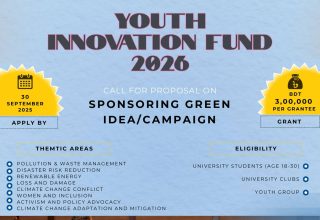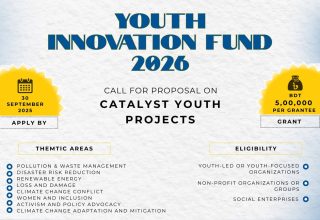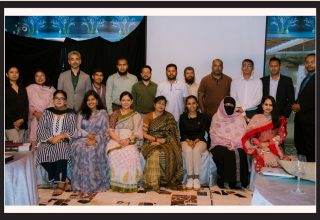Bangladesh produces only 5% of the cotton she needs to sustain her readymade garments industries. The country has very limited agricultural land and cotton competes with other crops for this scarce land resource. On top of that, Bangladesh is regarded as a country where agriculture is highly vulnerable to the variabilities of weather patterns that result from climate change. Against this backdrop, to better understand the potential for the sustainable expansion of cotton production in Bangladesh, we examine cotton’s agricultural value chain and projected climate risks associated with different phases of the chain. We identified associated stakeholders at different phases of cotton production, engaged with them to understand climatic and non-climatic threats and developed an integrated set of recommendations for climate-risk management through improving the connection of producers to markets, increasing economic returns to small farmers, and improving efficiency along the value chain. We discussed our estimated climate projections with stakeholders to understand the challenges at different stages of production and marketing, and together explored and identified probable solutions. This research offers a new and evolving approach to assess climate change impact on agriculture utilizing a holistic approach, which could be adopted for other crops.
Authors:
-
Tracking Community Perspectives on Climate Resilience in Bangladesh
Introduction Bangladesh, which generates a meagre 0.56% of global carbon emissions, is amo… -
Global recognition of the importance of nature-based solutions to the impacts of climate change
According to the World Economic Forum (2020) Global Risks Report, failure to mitigate and … -
Locally led adaptation is key to ending deforestation
Despite global pledges to end deforestation, forest loss continues. Focusing on mangrove f… -
From Framing to Financing #LossAndDamage
COP after COP, the global climate action community or the ‘Conference of Parties’ as it is… -
Dignity in the shadows: Let’s talk about it
Dignity surrounding vulnerability to natural resources is often left in the shadows in gender-climate based discourse
Note to the reader: We often forget to talk about dignity surrounding natural resou… -
The benefits of mainstreaming circular economy in school textbooks
Incorporation of the simplified concept of circular economy in school textbooks can influence our consumption behaviour and raise awareness on climate change
Does our consumption behaviour have any impact on climate change? Yes, it has – it …
-
Call for Proposal | ICCCAD Youth Innovation Fund 2026 (Sponsoring Green Idea/Campaign)
The Youth Innovation Fund – Sponsoring Green Idea-Campaign is a small-grant initiative tha… -
Call for Proposal | ICCCAD Youth Innovation Fund 2026 (Catalyst Youth Project)
The Youth Innovation Fund – Catalyst Youth Project is a small-grant initiative designed to… -
Roundtable Dialogue on Climate Change Impacts in the Ready-Made Garment (RMG) Sector
Acknowledgement: The International Centre for Climate Change and Development (ICCCAD) exte… -
Call for Application | ICCCAD Youth Fellowship Programme 2026
Youth are the driving force toward a climate-resilient future. They are the leading advoca… -
Magazine | Displaced by Climate: The Human Cost
INFLUENCERS, one of the winners of the ICCCAD Youth Innovation Fund 2024, has developed a … -
Our women farmers are ready to lead
It’s time we help them by listening to their needs
In a small village in Botiaghata, Khulna, Sanchita Bishwas described with pride the plots …
-
Loss and damage case studies from the frontline: a resource to support practice and policy
Loss and damage is an urgent issue: the world’s least-resourced communities and countries … -
Principles for locally led adaptation
Recovery from COVID-19 provides a historic opportunity for giving greater voice to local p…
Check Also
Roundtable Dialogue on Climate Change Impacts in the Ready-Made Garment (RMG) Sector
Acknowledgement: The International Centre for Climate Change and Development (ICCCAD) exte…























